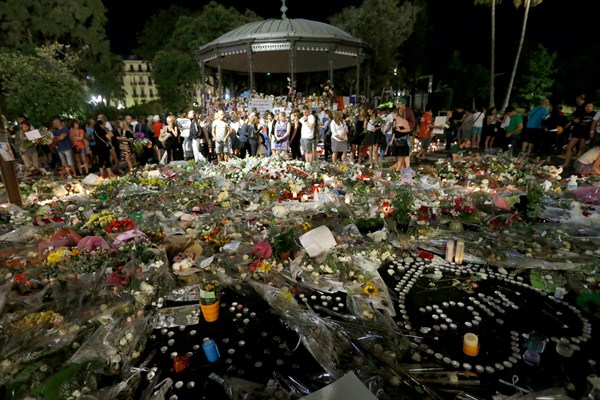The July 14 massacre in Nice, in which a Tunisian-born man living in France, Mohamed Lahouaiej Bouhlel, drove a truck through densely packed crowds celebrating Bastille Day along the waterfront, came just one week after a parliamentary committee called for an overhaul of the French intelligence services.
That call followed an investigation by a nonpartisan parliamentary commission into the response to the two attacks France suffered in 2015: first at the offices of satirical weekly Charlie Hebdo and a kosher supermarket that killed 17 in January; and subsequently at a number of sites in and around Paris, including the Bataclan theater, killing 130 in November. The investigation found a spate of failures in intelligence gathering and analysis, which lawmakers argued facilitated violence that could have otherwise been thwarted. Yet Interior Minister Bernard Cazeneuve insisted on July 6 that there were no such weaknesses and reduced the commission’s findings to “useless polemics.”
Among the commission’s 40 proposals was merging overlapping agencies—France currently has six discrete intelligence units answering to the Ministries of the Interior, Defense and Economy—under a new national agency that would report directly to the prime minister. They also included demands for a shared antiterrorism database, heightened prison monitoring for radicalization, and stricter sentences for convicted terrorists.

